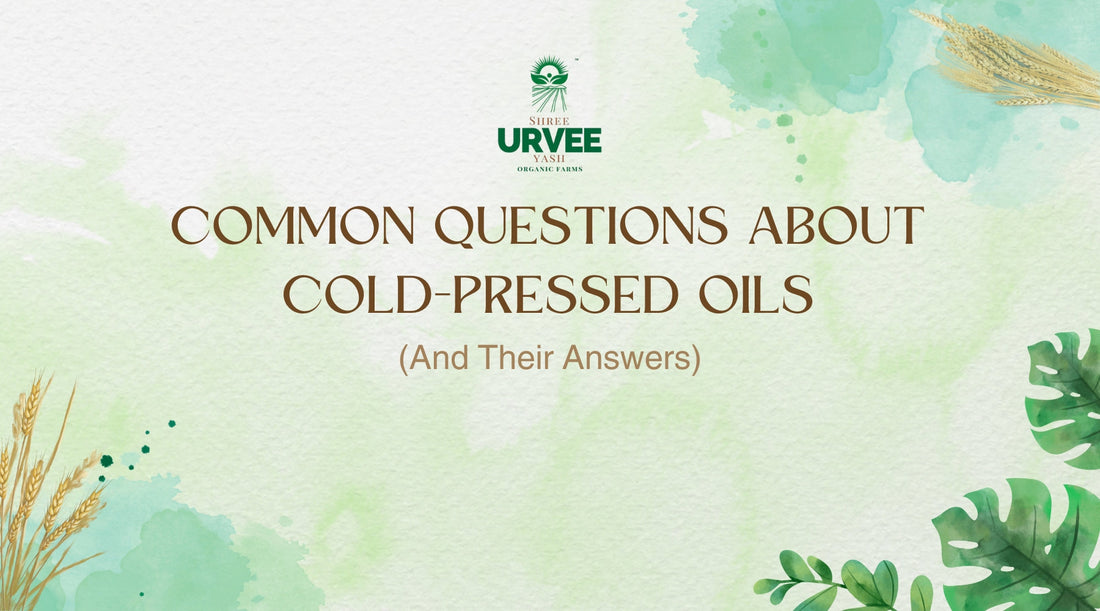Confused about Mustard oil, Groundnut oil, or how to store your cold-pressed oils? Let’s bust the myths and give you clear, honest answers — backed by science and tradition.
Q1: Isn’t Coconut Oil Too Fatty?
Short Answer: Yes, it’s fatty but it’s the good kind.
Why It Matters:
Coconut oil is rich in Medium Chain Triglycerides (MCTs), a type of fat that is:
- Easily digested
- Quickly converted into energy
- Not stored as fat like long-chain fatty acids
Bonus Insight:
MCTs have been linked to better metabolism, improved brain function, and even appetite regulation — making cold-pressed coconut oil a smart fat for your kitchen.
Q2: Isn’t Mustard Oil Banned in Some Countries?
Short Answer: Not anymore — especially the safe, regulated Indian varieties.
Why It Matters:
The concern came from erucic acid levels in mustard oil. However, Indian cultivars like Pusa Bold and NDRE-4 are well within the FSSAI-approved safety limits.
Cultural + Health Bonus:
- Mustard oil is a staple in Indian kitchens — known for its anti-inflammatory, antibacterial, and heart-friendly properties.
- Cold-pressed mustard oil retains all of these benefits without chemicals or solvents.
Q3: Why Are Cold-Pressed Oils More Expensive?
Short Answer: Because you’re paying for purity and nutrition, not mass-production.
Why It Matters:
- No heat or chemicals involved in extraction.
- Retains essential nutrients, aroma, and antioxidants.
- Made in small batches — not industrial scale.
- Long-term health savings > short-term price savings.
Urvee Insight:
Every drop of Urvee cold-pressed oil delivers natural wellness — the way food was meant to be consumed.
Q4: Is Oil Bad for Weight Loss?
Short Answer: No — the right oils in the right amount support weight management.
Why It Matters:
- Healthy fats improve satiety (you feel full longer).
- Support hormone regulation and nutrient absorption.
- Cold-pressed oils like sesame, coconut, and mustard are rich in omega-3s, MCTs, and antioxidants
What to Do:
Use oils wisely. Avoid deep-frying, but enjoy healthy fats in cooking, dressings, and even morning routines.
Q5: How Do I Store Cold-Pressed Oils?
Short Answer: Treat them like wine — away from heat, light, and air.
Best Practices:
- Store in dark glass bottles to prevent oxidation.
- Keep away from sunlight and stove heat.
- Use within 3–6 months of opening for maximum freshness.
Pro Tip from Urvee:
Refrigeration isn’t usually necessary, but for oils like flaxseed, it can extend shelf life.
Final Thoughts: It’s Time to Rethink Oil
Cold-pressed oils are not just about cooking — they’re about nourishing your body the clean, traditional way. Whether it’s coconut, mustard, sesame, or groundnut oil, making the right oil choices can elevate both your meals and your health.

